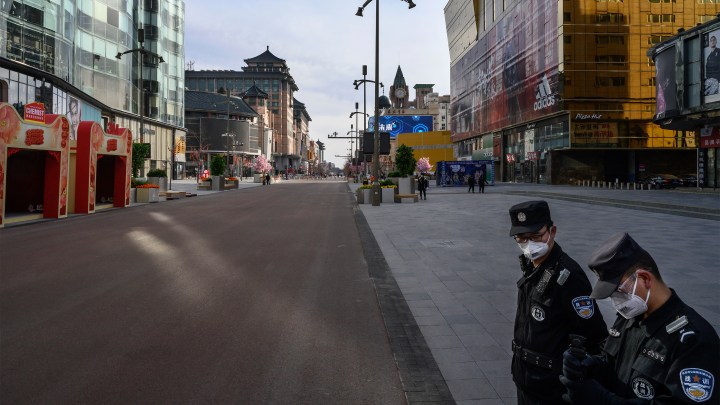
Coronavirus: Warnings from Apple, Nintendo and Nissan kindle “supply shock” fears
Coronavirus: Warnings from Apple, Nintendo and Nissan kindle “supply shock” fears

Not much is coming out of the smokestack of the world’s factory these days.
Due to the coronavirus epidemic, China still sees many of its manufacturing arteries shut down: the movement of people, supplies, ships.
Apple has warned its production will slow, as has Nintendo. Nissan and Hyundai shut entire car plants because they can’t get the parts they need from China.
The longer this goes on, the more businesses and economists worry about big shortages of everything in the world economy in what they call “supply shock.”
Every day, 4 million smartphones get sold somewhere in the world. Half a million TVs change hands.
So what happens if the supply cuts off for a long enough time?
“The way supply shocks work is they have a negative effect on quantity and a positive effect on price,” said economist Carmen Reinhart, who teaches at Harvard’s John F. Kennedy School of Government. “The most notorious of the supply shocks, of course, was the oil shock of the ’70s.”
The oil embargo against the United States quadrupled gas prices and fueled hyperinflation. Hardly anyone expects that kind of impact, at least for now.
But Cornell economist Eswar Prasad thinks price tags could go up for certain products, namely electronics.
“What would be most visible is the effect on cellphones and other wireless devices, as well as TVs, computers, those sorts of things are almost certainly going to be affected,” Prasad said.
If the epidemic goes longer than people think, there could be another supply shock.
Multinational firms could rearrange supply chains away from China, which could raise costs for businesses and prices for customers for all kinds of things.
Agathe Demarais, global forecasting director at the Economist Intelligence Unit, is watching it all closely.
“We don’t see any signs at the moment that Western companies are going to go out of China,” Demarais said. “That being said, if the outbreak is not contained by end March, it will be much more difficult to address for global companies.”
Demarais is monitoring ships leaving Chinese ports. Right now, she said, some are just 10% full.
There’s a lot happening in the world. Through it all, Marketplace is here for you.
You rely on Marketplace to break down the world’s events and tell you how it affects you in a fact-based, approachable way. We rely on your financial support to keep making that possible.
Your donation today powers the independent journalism that you rely on. For just $5/month, you can help sustain Marketplace so we can keep reporting on the things that matter to you.


















